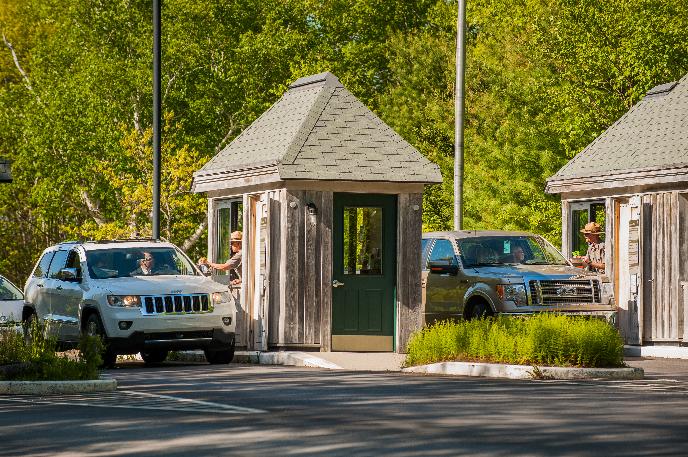With Congress and the Trump administration at odds over a federal spending bill, there’s a possibility the federal government will shut down for lack of funds at the end of the week. If that happens, most Mainers would notice few changes, at least at first, as Maine has few federal facilities and employees.
The most visible effect would be the closure of Acadia National Park. In addition, federal employees would not receive paychecks, some civilian workers could be furloughed, and there could be delays in getting passports.
The threat of the shutdown appeared to be abating Wednesday, as the White House dropped demands for funding of the construction of a wall along the U.S.-Mexico border. But Senate Democrats could still block the spending bill if their demands for continued premium subsidies for people who buy health insurance via Affordable Care Act exchanges are not met.
If a shutdown occurs, essential government services and those provided by independent agencies or guaranteed by law will continue to operate. The Postal Service will deliver mail, the Amtrak Downeaster will make its runs, air traffic controllers will be working, and the military will operate as usual.
Social Security, Medicare and food stamp benefits will be distributed, and veterans will still have access to most medical services at the Togus Veterans Affairs Medical Center and other VA facilities.
The federal courts would be open, although civil cases could be postponed if the shutdown began to exhaust non-annual funding appropriations. Food inspectors, federal law enforcement agents and members of Congress would still report to work.
But great swaths of the federal government considered non-essential would close down until the deadlock in Washington was broken.
Exactly how each department and agency handles this varies from shutdown to shutdown and administration to administration.
In Maine, the most obvious effect would be closure of Acadia National Park.
In 2013, a 16-day shutdown resulted in the closure of park gates, parking lots and roads, and the cancellation of all in-park activities and ranger-led programs. Campers were given 48 hours to leave the grounds, but rangers didn’t try to stop pedestrians from walking in and around the park.
Whether this would happen this year is unknown.
“We’re very much in the same boat as everyone else in the public knowing now whether the shutdown will happen and if it does what guidance we will have and what result that creates,” said park spokesman John Kelly. “Technically right now we are in the dark, and until something happens we won’t have the guidance as to how it will effect the park.”
Other potential effects of a shutdown:
— Most federal employees wouldn’t get paychecks. There are 10,783 executive branch federal jobs in Maine, and most of the people holding them – whether essential or not – would not get paychecks during the shutdown, although “essential” personnel would be paid retroactively once the impasse was resolved.
— Civilian federal workers might be furloughed. Days before the 2013 shutdown, many of the more than 4,700 civilian workers at the Portsmouth Naval Shipyard in Kittery did not know whether they would be able to report for work. Guidance on these issues might come late from Washington this time around as well.
— Passport and visa applications would be delayed. In 2013, the State Department stopped processing some 200,000 passport applications during the shutdown, while tens of thousands of visa applications from foreigners accumulated unprocessed each day.
— Federal grants to cities, state would be delayed. The federal government provides tens of millions in grant funding to Maine cities, towns, and state government for a wide variety of purposes, from environmental protection to the restoration of contaminated industrial sites, to the funding of home heating assistance and schools. There would be few noticeable effects in the first week or two, but an extended shutdown lasting weeks or months would eventually trigger ripple effects that would disrupt many aspects of civic life.
Colin Woodard can be contacted at:
cwoodard@pressherald.com
Send questions/comments to the editors.



Success. Please wait for the page to reload. If the page does not reload within 5 seconds, please refresh the page.
Enter your email and password to access comments.
Hi, to comment on stories you must . This profile is in addition to your subscription and website login.
Already have a commenting profile? .
Invalid username/password.
Please check your email to confirm and complete your registration.
Only subscribers are eligible to post comments. Please subscribe or login first for digital access. Here’s why.
Use the form below to reset your password. When you've submitted your account email, we will send an email with a reset code.